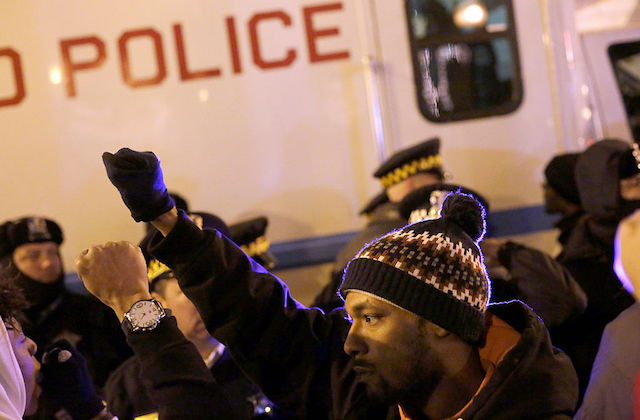A lawsuit filed against the city of Chicago yesterday (June 14) seeks to force federal courts to oversee reform of the Chicago Police Department (CPD).
On January 13, the U.S. Department of Justice finished a year-long investigation into the CPD and concluded that the department routinely uses excessive force—particularly when interacting with Black and Latinx people. Under the Obama Administration, this type of news was was typically followed by the announcement of a consent decree, a legally binding agreement that guides reform.
But the Chicago Tribune reported last week that the city of Chicago filed a proposed agreement with the Department of Justice that would not be backed by federal court oversight. It’s a move one that is in-line with current Attorney General Jeff Sessions’ comments that his department needs to stop “handcuffing the police instead of the criminals” and his decision to review all current and pending consent decrees.
The class-action suit was filed in the U.S. District Court for Northern District of Illinois. The plaintiffs in Campbell v. City of Chicago include six private citizens, plus Black Lives Matter Chicago, Blocks Together, Brighton Park Neighborhood Council, Justice for Families—Black Lives Matter Chicago, Network 49, Women’s All Point Bulletin and 411 Movement for Pierre Loury. It names the City of Chicago and 15 individual CPD officers as defendants.
From the suit: “Absent federal court supervision, nothing will improve.… It is clear that federal court intervention is essential to end the historical and on-going pattern and practice of excessive force by police officers in Chicago.”
The presiding judge could compel the city to reform the department, but Craig Futterman, a lead attorney for the plaintiffs told NBC News/The Associated Press that the plaintiffs want Chicago mayor Rahm Emanuel to work with them to create a plan that the court could then monitor.
“This is the community stepping up when the government refuses to act and when it has long been clear that the city is incapable of acting on its own,” Futterman said.
